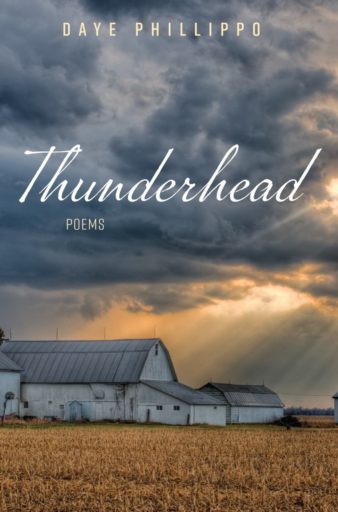

In the poem that opens this, his ninth collection, one of our most celebrated men of letters contemplates the “primordial tensions” felt in the crashing waves of a Northeaster, the glory and terror of the storm as “the real comes crashing finally down on you.” Contemplating as we all must the unrelenting passing of time and the harsh realities of history, Paul Mariani embodies the filmmaker Akira Kurosawa’s dictum that “the artist is the one who does not look away.”
| Hardcover | ISBN 9781639821129 | $25.00 |
| Paperback | ISBN 9781639821112 | $14.00 |
| eBook | ISBN 9781639821136 | $9.99 |
2023 CATHOLIC BOOK AWARDS: HONORABLE MENTION
In the poem that opens this, his ninth collection, one of our most celebrated men of letters contemplates the “primordial tensions” felt in the crashing waves of a Northeaster, the glory and terror of the storm as “the real comes crashing finally down on you.” Contemplating as we all must the unrelenting passing of time and the harsh realities of history, Paul Mariani embodies the filmmaker Akira Kurosawa’s dictum that “the artist is the one who does not look away.”
And yet, even in the face of pandemics, wars, and the open wound of racism, the poet continues his search for those artists, activists, writers, and saints who can guide us through the wilderness and help us preserve the hope that all things can be made new.
Whether he is contemplating painters from Caravaggio to Van Gogh in deft ekphrastic poems, evoking the courageous witness of Harriet Tubman and Malcolm X, or visiting with the poets, living and dead, who have been his masters, Paul Mariani’s lyrical voice rings true. In the end, after the arduous journey that has taken him so far, the poet joins a simple supper, where the real shines forth in the breaking of bread.
Gift, if attended to in the usual way, mellows into reliable competence. The poet starts with a wild flame, and they cultivate it into a pilot light. Paul Mariani, however, is that rare poet who discovers late fire. The poems in All That Will Be New have a new energy, a new fullness, a new relentlessness, even, as they confront the relentless horrors of the present. Mariani has become one of the poets from whom I am most excited to read new work, and All That Will Be New testifies to the surprising ripening of his extraordinary gift.
Shane McCrae, author of Cain Named the Animal
Paul Mariani, the splendid biographer of so many poets and a fine poet himself, has written, in this, his latest collection, a volume dedicated to the joys, laments, and deepest seeing into the heart of things and our fragile yet wondrous lives that surround them. In his Orphic glance back over his long life, Mariani gives us poems written in a generous long measure and also generous in their close observations–from the spreading bole and enormous roots of a century-old catalpa tree to the fine specificities of preparing everyday meals with his beloved wife Eileen, from great Romantic and Modernist paintings to his deep friendships with other contemporary poets. Yet he also tracks his own shifting emotions as he pursues a life in letters and memory, tracking an early ignorance of racial struggle, his own working-class challenges trying to become a scholar, then turning to the passage of his ancestors from a small village in Italy, later walking that same ground himself and falling into worthy meditations on time, immigration, and descent. For in All That Will Be New, Mariani revivifies the old—ancestral roots, deep friendships, the splendid music of poetry, and the lavish vision of a gifted and mature seer.
Garrett Hongo, author of Coral Road
Consistently and elegantly, Paul Mariani’s poems pierce the quotidian to reveal the profound conundrums of our lives. To God brooding over Covid he asks, “What is it you want us to take away from this?” God does not answer directly, and Mariani does not provide facile answers. After all, life’s losses abound: the death of a beloved spaniel; the robin crying out for his mate killed by a hound; the barber mourning his mother lost in the twin towers; the memories of friends, now gone forever; even the death of a beloved catalpa tree. And yet, in poem after poem he reveals art pointing the way: Homer, Van Gogh, O’Connor, Caravaggio, and so many others—imaginations that do not flinch but express the griefs and outrage through the bedrock of beauty—exactly what Mariani himself is doing in these dazzling poems. After all, he points out, death and glorification, such an odd mix, puzzled the disciples, but are Good News, “easter[ing] in each one of us.”
Jill Peláez Baumgaertner, author of From Shade to Shine: New Poems